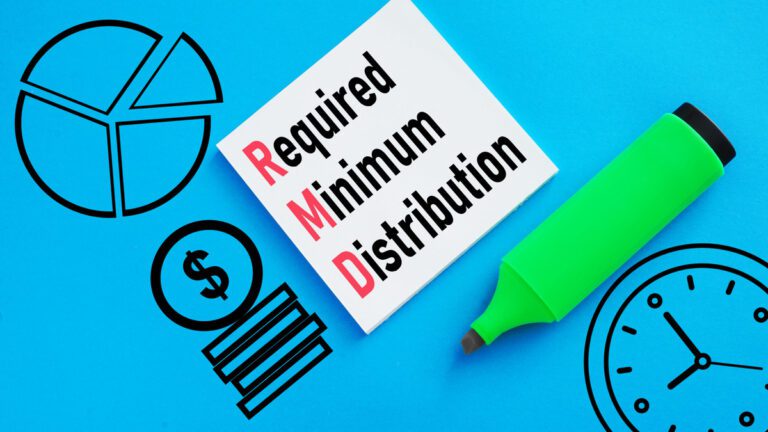🎧 Listen to This Article
While your lifestyle and priorities might change in retirement, so do taxes. Understanding how your taxes work in your golden years can help maximize savings and avoid costly mistakes.
While Tax Day is here, there’s still time to get last-minute tax tips. Of course, speaking with a tax professional is always recommended, but here are three things to keep in mind before the end of the day that could save you money, according to finance experts.
New Inherited IRA Rule for 2025 May Trigger 25% Tax Penalty
1. Understand the Required Minimum Distribution (RMD) Rules
The required minimum distribution refers to the amount of money retirees have to withdraw every year, starting at age 73, from tax-deferred retirement accounts like 401(k) plans and traditional IRAs, in order to avoid fees from the IRS.
“If you are past the age where you need to take your required minimum distribution (RMD) from your qualified plans like your IRA, not Roth, or 401(k), you’ll want to make sure you took what you needed to take for last year,” said Eric Mangold, CWS, founder of Argosy Wealth Management.
He added, “If you don’t take your RMD, there is a 25% penalty on what you were supposed to take. But if you correct this within two years and take what you are supposed to, the penalty may be lowered to 10%.”
It’s important to note that the rules have changed for RMDs as a result of the Secure Act 2.0. Here’s what Mangold suggested being mindful of.
- Starting Jan. 1, 2023, if you turned 72 after the year 2022, you wouldn’t have to start taking your RMDs until you turn 73.
- Each year, if you have a tax-qualified plan, like a 401(k) or IRA, you are required to take a portion of that account that you will typically be taxed on.
- If you have a Roth IRA or a brokerage account, however, RMDs are not typically required from those account types.
- The amount you need to take changes each year. It is determined by your prior end-of-year balance, and then it is divided by a life expectancy factor determined by the IRS.
For example, if you had an IRA balance of $100,000 on Dec. 31, 2023, and your life expectancy factor is 26.5, your RMD for 2024 would be $3,773.58.
While you’ve missed the deadline to take your 2024 RMDs, it’s not too late to reduce the penalty by taking them now.
2. Know the Difference Between a Traditional IRA and a Roth IR
It’s easy to confuse a traditional IRA and a Roth IRA, but there is a big difference, and Greg Stoller, master lecturer in innovation and strategy at Boston University’s Questrom School of Business, suggested “understanding the idiosyncrasies between them.”
He explained, “For example, withdrawals from a Roth during retirement are totally tax-free.”
The rules are different for a traditional IRA, and Stoller advised that you “speak with a certified public accountant to determine — and understand — whether traditional IRA withdrawals are taxable or not.”
3. Take Advantage of Tax-Advantaged Accounts for Medical Expenses
As a retiree, medical expenses can take up a significant portion of your budget, and taxes on healthcare-related costs can be steep. One way to reduce this burden is by using tax-advantaged accounts designed specifically for medical expenses.
Health Savings Accounts (HSAs) are a powerful tool for retirees because contributions are tax-deductible, the account grows tax-free, and withdrawals used for qualified medical expenses are also tax-free. If you’re still eligible for an HSA and haven’t fully funded your account, it’s a great opportunity to contribute before the tax deadline to reduce your taxable income.
Additionally, retirees over 65 can take advantage of Medicare and its associated expenses. While Medicare premiums are automatically deducted from Social Security payments, certain out-of-pocket medical expenses, including prescription costs and long-term care, may be eligible for deductions, which can lower your taxable income.
Greg Stoller suggested retirees work with a financial advisor to ensure they are utilizing the full range of medical tax deductions and savings accounts available to them. Many medical-related expenses are tax-deductible, and planning these deductions can significantly reduce your overall tax liability.
Maximize Your Savings
In retirement, managing your taxes efficiently can help preserve your hard-earned savings for the long term. By understanding RMDs, the differences between traditional IRAs and Roth IRAs, and making use of tax-advantaged medical accounts, you can minimize penalties and reduce your overall tax burden. Don’t forget to consult with a tax professional to ensure you’re taking the best steps for your unique financial situation.
For further details, clarification, contributions, or any concerns regarding this article, please contact us at editorial@tax.news. We value your feedback and are committed to providing accurate and timely information. Please note that our privacy policy will handle all inquiries



